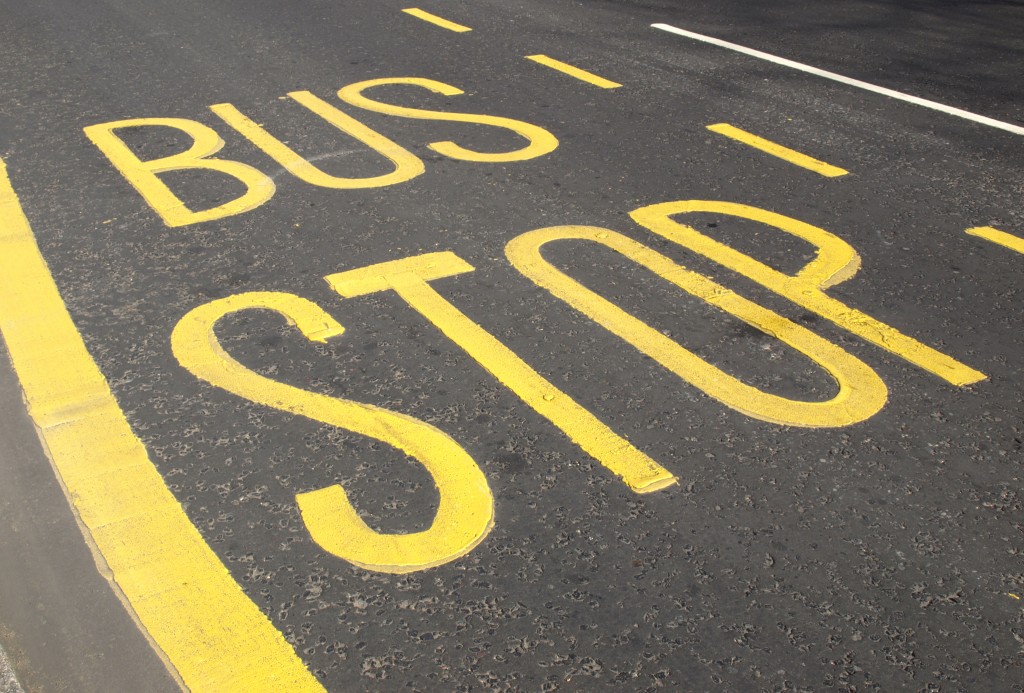‘Clear act of discrimination’
London bus driver Marcia Carty drives her bus every day wearing her standard work uniform. But like many people practicing certain religions, she also wears a symbol to observe her faith. In her case, as a Rastafarian, she’s donned the Rastafarian colours red, gold and green on a head covering at work – something she’s done for years.
But now her employer, bus operator Metroline Travel, has unilaterally barred her from wearing the head covering, even though Marcia has made clear she must wear the colours to observe her faith.
Marcia launched a grievance against the discrimination and even offered to compromise – she said she would wear a predominantly black head scarf with the colours covering a smaller area – but to no avail.
Metroline has not only continued to ban Marcia from wearing her colours – even though the firm allows other employees such as Sikhs to wear turbans and Muslims to wear head scarves – but management has also allegedly questioned if Rastafarianism is a religion in the first place.
Unite has vowed to challenge management’s decision.
Unite regional official John Murphy said the union was “incredibly disappointed with the attitude of Metroline.”
“This is a clear case of religious discrimination and it is imperative that the company realises its errors and allows our member to practice her religion by wearing the colours of her religion,” he noted.
“Our member has been reasonable and is willing to adapt her dress but Metroline has refused to even consider accommodating her needs.
“Unite will simply not allow such a clear case of discrimination to go unchallenged,” Murphy added. “We will consider all industrial, political and legal options to ensure that this discrimination is ended.
“London is a multicultural city and most people will be shocked and appalled that a bus company is condoning religious discrimination, especially as it in no way interferes with our member from performing her job.”
Faith discrimination at work
Sadly, Marcia’s experience of faith discrimination at work isn’t exceptional – a ComRes Faith Research survey last year found that about a million people have experienced discrimination because of their religion work, and about one in 25 reported that they were aware of colleagues who had been discriminated against.
Another Equality and Human Rights Commission (EHRC) study from 2015 that collected evidence from more than 2,000Â individuals and organisations found many respondents reporting pressure to hide their religious views or symbols at work.
Of those who had experienced perceived discrimination at work, many felt powerless to address the issue – they lacked confidence that anything would change if they did speak up, they feared repercussions from management or had experienced pressure from bosses not to complain.
Jewish and Muslim workers reported that they’d experienced difficulties taking time off from work for religious holidays, and overall the research found that there was widespread confusion surrounding religious discrimination laws.
There should now be little confusion, however, over religious dress – in May the government published new guidelines over workplace dress codes including religious symbols.
“Britain is an integrated and cohesive society with a proud tradition of religious tolerance within the law,” the guidance says. “Employers should be flexible and not set dress codes which prohibit religious symbols that do not interfere with an employee’s work.”
Unite national officer for equalities Harish Patel denounced the treatment of Marcia Carty and all those who are discriminated against in the workplace because of their faith.
“We live in a proudly multicultural country where people are free to observe their faith, whichever religion that may be.” he said. “It is an outrage that a London bus driver, one of the thousands who play an integral role in keeping our great, diverse capital ticking over, should be treated so horribly.
“The government’s guidance on wearing religious symbols at work is clear – if it doesn’t interfere with one’s work, it should be permitted,” he added. “We know that BAEM women face higher levels of workplace discrimination than any other group and sadly, this is yet another example. At the heart of our union is equal and fair treatment at work for all – we will not stand for this clear act of discrimination.”
You can support Marcia Carty by signing an online petition here.Â
 Like
Like Follow
Follow


